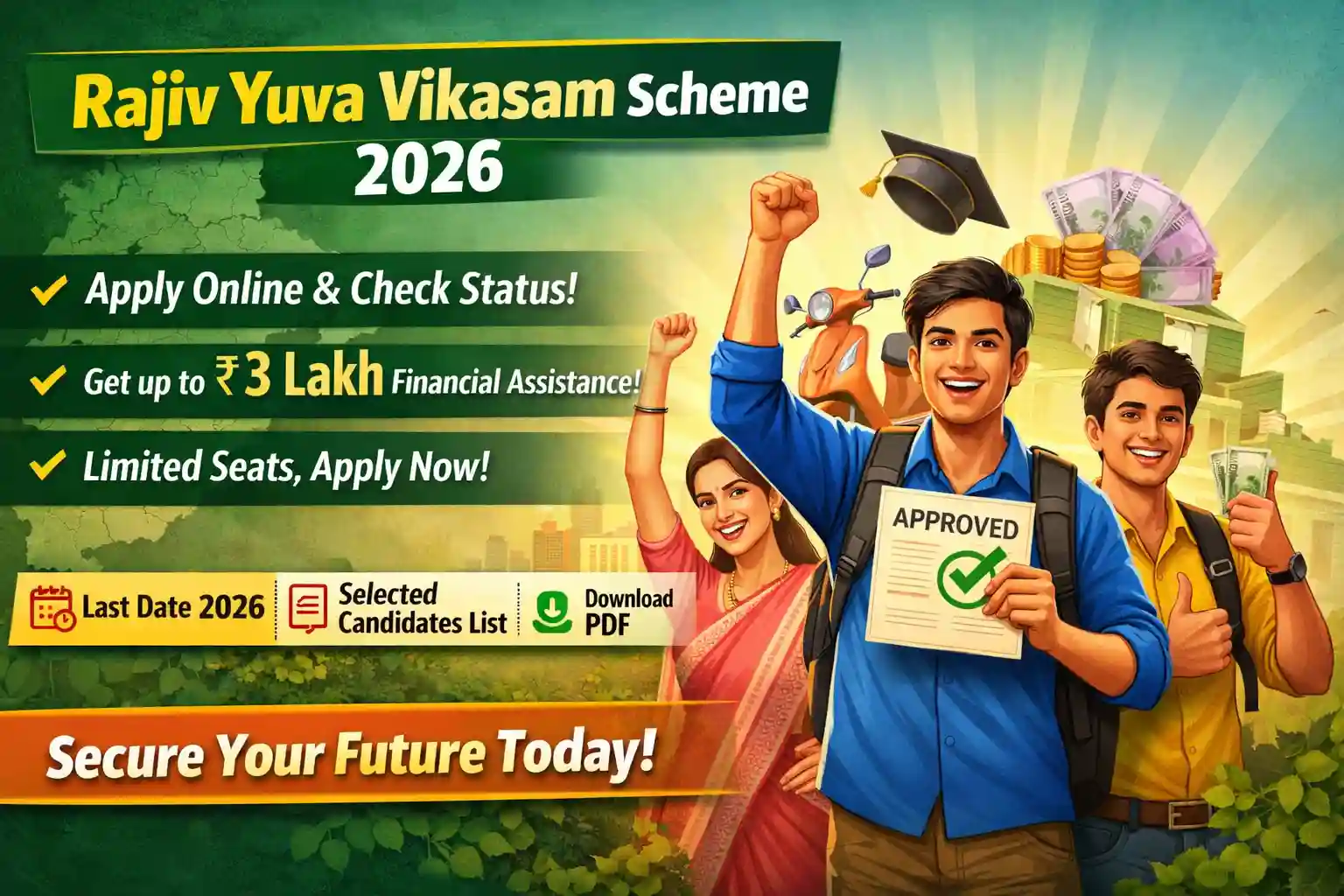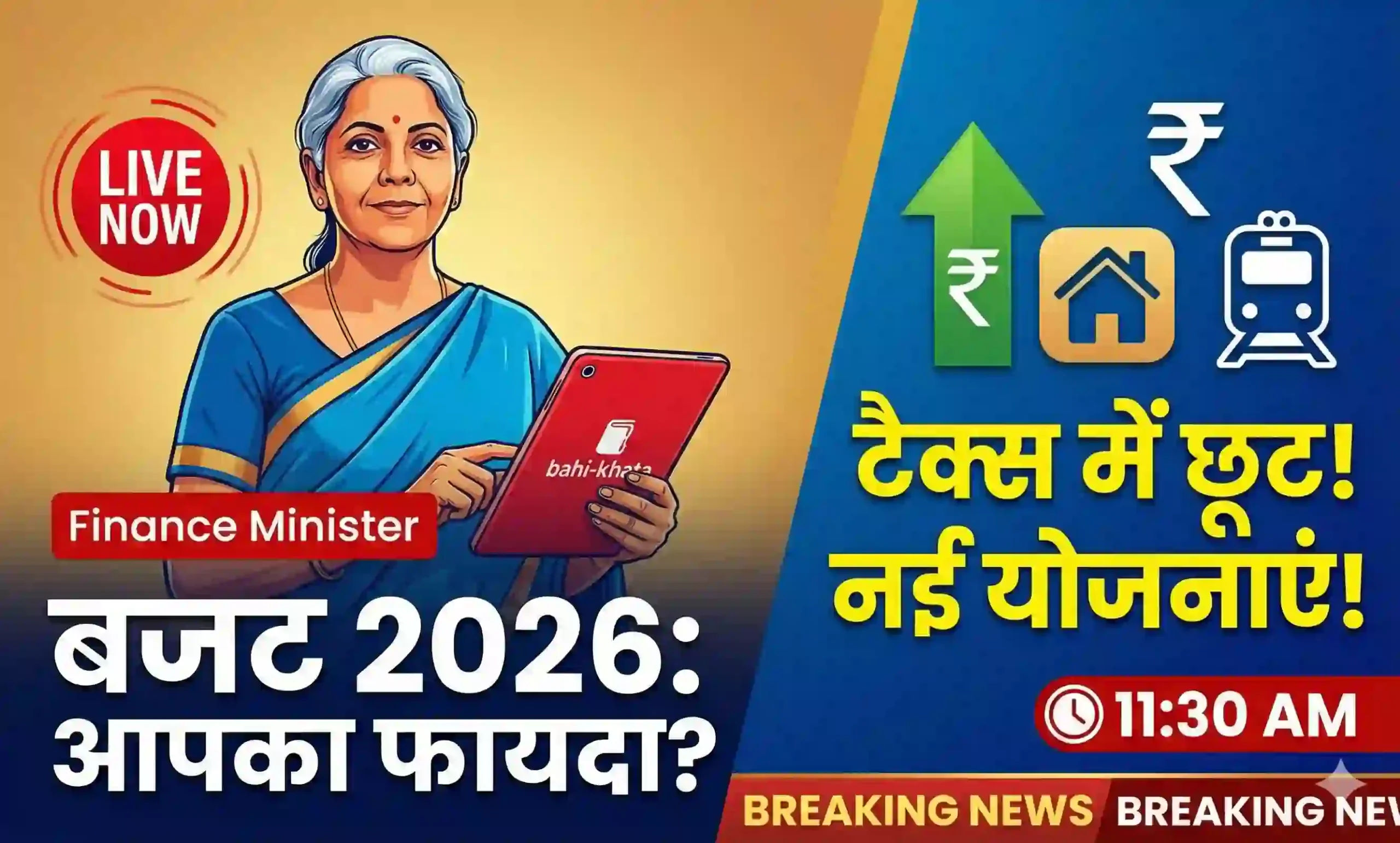|
Getting your Trinity Audio player ready... |
UGC NET December Registration: The University Grants Commission-National Eligibility Test (UGC NET) is scheduled to take place from December 6th to December 22nd, 2024. This rigorous examination serves as the arbiter of eligibility for Indian nationals aspiring to hold the esteemed positions of ‘Assistant Professor’ and ‘Junior Research Fellowship and Assistant Professor’ within the esteemed precincts of Indian Universities and Colleges.
Notably, UGC NET examinations are traditionally convened biannually, in both the months of June and December. Aspiring candidates keen to partake in these academic assessments can anticipate the announcement of registration dates by the esteemed National Testing Agency (NTA) several months ahead of the examination’s commencement.
Detailed step-by-step application for the UGC NET examination:
Step 1: Navigate to the Official Website
Commence your UGC NET application process by visiting the official website of the National Testing Agency (NTA) designated for UGC NET registrations.
Step 2: Register for the Examination
Click on the “Registration” or “Apply Online” tab to initiate the registration process. You will be required to provide essential personal details such as your name, date of birth, contact information, and email address. Create a unique username and password for your account.
Step 3: Complete the Application Form
Log in to your account using the credentials you’ve just created. Fill out the UGC NET application form meticulously. This entails entering academic qualifications, preferred examination center, subject code, and other requisite information. Ensure accuracy and completeness in your entries.
Step 4: Upload Documents
You’ll need to upload scanned copies of your passport-sized photograph and signature in the prescribed format. Make sure that these documents meet the specified size and resolution requirements.
Step 5: Pay the Examination Fee
Proceed to the payment section and make the requisite examination fee payment using the available payment options. Keep a record of the transaction for future reference.
Step 6: Print Confirmation Page
After successful payment, generate the confirmation page of your application form. This page will display all the details you’ve entered. Take a printout of this page for your records.
Step 7: Send the Application Form (if applicable)
If the UGC NET bulletin specifies that a hard copy of the application form needs to be submitted to the NTA, do so within the stipulated timeframe. Ensure that all necessary documents and the confirmation page are enclosed as instructed.
Step 8: Admit Card Download
Wait for the NTA to process your application. Once your application is accepted, you will receive an admit card. Download and print your admit card before the examination date.
Step 9: Examination Day
On the scheduled date, arrive at the examination center with your admit card and valid photo identification. Follow all examination rules and guidelines.
Step 10: Await Results
After completing the UGC NET examination, patiently await the release of results. The NTA will announce the results on their official website.
Note: It is essential to thoroughly review the UGC NET information bulletin and official notifications for any specific instructions or changes in the application process each year.
UGC NET syllabus for 2023, categorized by subject:
Paper I: General Paper on Teaching and Research Aptitude
- Teaching Aptitude
- Research Aptitude
- Comprehension
- Communication
- Mathematical Reasoning and Aptitude
- Logical Reasoning
- Data Interpretation
- Information and Communication Technology (ICT)
- People and Environment
Paper II and III: Subject-Specific Syllabus
Candidates can choose their subject for Paper II and III from the list of UGC NET subjects. Here are some examples of subject-specific syllabi:
1. Economics
- Microeconomics
- Macroeconomics
- International Economics
- Public Economics
- Indian Economy
- Economic Development and Planning
- Environmental Economics
- Mathematical Methods in Economics
- Statistics for Economics
2. History
- Ancient Indian History
- Medieval Indian History
- Modern Indian History
- World History
- History of Science and Technology
- Art and Culture
- Archaeology
- Historical Methods
3. English
- Chaucer to Shakespeare
- Jacobean to Restoration Periods
- Augustan Age: 18th Century Literature
- Romantic Period
- Victorian and Pre-Raphaelites
- Modern and Contemporary Periods
- American and other Non-British Literatures
- Literary Theory and Criticism
4. Political Science
- Political Theory and Thought
- Comparative Politics and Political Analysis
- Indian Government and Politics
- International Relations
- Public Administration
- Political Institutions in India
- Political Ideologies
- Political Philosophy
5. Environmental Science
- Principles of Ecology
- Biodiversity and Conservation
- Environmental Pollution
- Climate Change
- Environmental Impact Assessment
- Sustainable Development
- Environmental Laws and Policies
- Environmental Ethics
6. Computer Science and Applications
- Data Structures and Algorithms
- Computer Organization and Architecture
- Programming and Problem Solving
- Database Management Systems
- Operating Systems
- Software Engineering
- Computer Networks
- Web Technologies
7. Commerce
- Business Environment and International Business
- Accounting and Auditing
- Business Economics
- Business Finance
- Business Statistics and Data Processing
- Business Management
- Marketing Management
- Human Resource Management
8. Sociology
- Sociological Concepts and Perspectives
- Social Institutions
- Social Change and Development
- Research Methodology and Statistical Techniques
- Sociological Thinkers
- Indian Society
- Industrial and Urban Society
- Globalization and Social Movements
9. Psychology
- Biological Basis of Behavior
- Sensation and Perception
- Learning and Memory
- Thinking and Problem Solving
- Motivation and Emotion
- Personality Theories
- Psychological Disorders
- Social Psychology
10. Education
– Philosophical and Sociological Foundations of Education
– Psychological Foundations of Education
– Research Methods and Statistics in Education
– Teacher Education
– Educational Technology
– Curriculum Development
– Educational Administration and Management
– Inclusive Education
11. Management
– Principles of Management
– Organizational Behavior
– Human Resource Management
– Marketing Management
– Financial Management
– Strategic Management
– Operations Management
– International Business
12. Geography
– Geomorphology
– Climatology
– Oceanography
– Human Geography
– Regional Planning and Development
– Environmental Geography
– Geographic Information Systems (GIS)
– Cartography and Remote Sensing
13. Library and Information Science
– Library and Society
– Information Sources and Services
– Information Processing
– Library Classification and Cataloging
– Library Management
– Information Technology and Digital Libraries
– Research Methodology
– Preservation and Conservation
14. Environmental Science
– Principles of Ecology
– Biodiversity and Conservation
– Environmental Pollution
– Climate Change
– Environmental Impact Assessment
– Sustainable Development
– Environmental Laws and Policies
– Environmental Ethics
15. Philosophy
– Classical Western Philosophy
– Modern Western Philosophy
– Indian Philosophy
– Ethics and Value Theory
– Logic and Reasoning
– Philosophy of Mind and Language
– Social and Political Philosophy
– Philosophy of Science and Religion
16. Economics
- Microeconomics
- Macroeconomics
- International Economics
- Public Economics
- Indian Economy
- Economic Development and Planning
- Environmental Economics
- Mathematical Methods in Economics
- Statistics for Economics
17. History
- Ancient Indian History
- Medieval Indian History
- Modern Indian History
- World History
- History of Science and Technology
- Art and Culture
- Archaeology
- Historical Methods
18. English
- Chaucer to Shakespeare
- Jacobean to Restoration Periods
- Augustan Age: 18th Century Literature
- Romantic Period
- Victorian and Pre-Raphaelites
- Modern and Contemporary Periods
- American and other Non-British Literatures
- Literary Theory and Criticism
19. Political Science
- Political Theory and Thought
- Comparative Politics and Political Analysis
- Indian Government and Politics
- International Relations
- Public Administration
- Political Institutions in India
- Political Ideologies
- Political Philosophy
20. Environmental Science
- Principles of Ecology
- Biodiversity and Conservation
- Environmental Pollution
- Climate Change
- Environmental Impact Assessment
- Sustainable Development
- Environmental Laws and Policies
- Environmental Ethics
21. Computer Science and Applications
- Data Structures and Algorithms
- Computer Organization and Architecture
- Programming and Problem Solving
- Database Management Systems
- Operating Systems
- Software Engineering
- Computer Networks
- Web Technologies
22. Commerce
- Business Environment and International Business
- Accounting and Auditing
- Business Economics
- Business Finance
- Business Statistics and Data Processing
- Business Management
- Marketing Management
- Human Resource Management
23. Sociology
- Sociological Concepts and Perspectives
- Social Institutions
- Social Change and Development
- Research Methodology and Statistical Techniques
- Sociological Thinkers
- Indian Society
- Industrial and Urban Society
- Globalization and Social Movements
24. Psychology
- Biological Basis of Behavior
- Sensation and Perception
- Learning and Memory
- Thinking and Problem Solving
- Motivation and Emotion
- Personality Theories
- Psychological Disorders
- Social Psychology
25. Education
- Philosophical and Sociological Foundations of Education
- Psychological Foundations of Education
- Research Methods and Statistics in Education
- Teacher Education
- Educational Technology
- Curriculum Development
- Educational Administration and Management
- Inclusive Education
26. Management
- Principles of Management
- Organizational Behavior
- Human Resource Management
- Marketing Management
- Financial Management
- Strategic Management
- Operations Management
- International Business
27. Geography
- Geomorphology
- Climatology
- Oceanography
- Human Geography
- Regional Planning and Development
- Environmental Geography
- Geographic Information Systems (GIS)
- Cartography and Remote Sensing
28. Library and Information Science
- Library and Society
- Information Sources and Services
- Information Processing
- Library Classification and Cataloging
- Library Management
- Information Technology and Digital Libraries
- Research Methodology
- Preservation and Conservation
29. Environmental Science
- Principles of Ecology
- Biodiversity and Conservation
- Environmental Pollution
- Climate Change
- Environmental Impact Assessment
- Sustainable Development
- Environmental Laws and Policies
- Environmental Ethics
30. Philosophy
- Classical Western Philosophy
- Modern Western Philosophy
- Indian Philosophy
- Ethics and Value Theory
- Logic and Reasoning
- Philosophy of Mind and Language
- Social and Political Philosophy
- Philosophy of Science and Religion
31. Social Work
- Social Work Profession and History
- Social Work Methods and Techniques
- Social Work Research
- Human Behavior and Social Environment
- Social Work Administration and Management
- Social Policy and Planning
- Human Rights and Social Justice
- Contemporary Social Issues
32. Commerce (Finance and Accounting)
- Financial Accounting
- Corporate Accounting
- Management Accounting
- Financial Management
- Business Economics
- Business Statistics and Research Methods
- Financial Markets and Institutions
- Taxation Laws and Practices
33. Mass Communication and Journalism
- Communication and Media Studies
- Journalism Ethics and Laws
- Print and Online Journalism
- Electronic Media
- Advertising and Public Relations
- Media Research and Cultural Studies
- Media Management and Governance
- International Communication
34. Economics (Rural Development)
- Rural Development Concepts and Theories
- Rural Development Programs and Policies
- Rural Development Planning and Management
- Agricultural Economics
- Rural Sociology and Social Change
- Natural Resource Management
- Livelihoods and Sustainable Development
- Gender and Development
35. Music
- Historical Development of Indian Music
- Musicology and Music Literature
- Theory and Practice of Indian Music
- Music in Various Indian Traditions
- Western Music
- Music Education and Aesthetics
- Music Therapy
- Contemporary Trends in Music
36. Social Medicine and Community Health
- Concepts of Health and Disease
- Epidemiology and Biostatistics
- Health Care Systems and Policies
- Social and Behavioral Aspects of Health
- Maternal and Child Health
- Environmental Health
- Health Promotion and Education
- Public Health Administration and Management
Certainly, here are a few more examples of subject-specific syllabi for UGC NET Paper II and III:
37. Anthropology
- Biological Anthropology
- Archaeological Anthropology
- Social-Cultural Anthropology
- Linguistic Anthropology
- Applied Anthropology
- Methods and Techniques in Anthropology
- Evolution of Human Culture
- Ethnographic Studies
38. Political Science (International Relations)
- Theories of International Relations
- International Political Economy
- Global Governance and International Organizations
- Conflict and Conflict Resolution
- Foreign Policy Analysis
- International Security
- International Law and Organizations
- Diplomacy and Negotiation
39. Public Administration
- Theories of Administration
- Administrative Behavior
- Public Policy Analysis
- Public Personnel Administration
- Financial Administration
- Public Sector Ethics
- Administrative Reforms and Governance
- Comparative Public Administration
40. Visual Arts (Art History)
- Art and Architecture of Ancient India
- Medieval Indian Art and Architecture
- Modern Indian Art
- Western Art History
- Contemporary Art Trends
- Art Criticism and Aesthetics
- Museology and Conservation
- Art and Society
41. Social Work (Human Resource Management)
- Human Resource Management Principles
- Employee Relations and Labor Laws
- Training and Development
- Compensation and Benefits
- Organizational Behavior
- Human Resource Planning
- Performance Management
- Employee Engagement and Motivation
42. Hindi
- Hindi Language and Literature
- Hindi Poetry and Prose
- Hindi Grammar and Linguistics
- Modern Hindi Literature
- Classical Hindi Literature
- Comparative Literature
- Literary Criticism
- Literary Theory
43. Yoga
- Foundations of Yoga
- Yoga Philosophy and Ethics
- Yoga Practices and Techniques
- Yoga Therapy
- Yoga and Health
- Yoga Research
- Yoga Education
- Yoga and Psychology
44. Tourism Administration and Management
- Tourism Concepts and Theories
- Tourism Marketing
- Tourism Planning and Development
- Tourism Policy and Regulations
- Tourist Behavior and Psychology
- Sustainable Tourism
- Tourism and Culture
- Hospitality Management
45. Sociology (Criminology)
- Criminological Theories
- Crime and Deviance
- Criminal Justice System
- Victimology
- Penology
- White-Collar Crime
- Comparative Criminology
- Gender and Crime
46. Philosophy (Ethics)
- Ethical Theories (e.g., Deontology, Utilitarianism, Virtue Ethics)
- Metaethics
- Applied Ethics (e.g., Medical Ethics, Environmental Ethics)
- Moral Psychology
- Ethical Dilemmas and Case Studies
- Ethics in the Digital Age
- Ethical Issues in Business and Professions
- Ethics and Justice
47. Women’s Studies
- Feminist Theories
- Gender and Society
- Women’s Movements and Activism
- Gender and Work
- Gender and Health
- Gender and Education
- Gender and Literature
- Gender and Politics
48. Music (Ethnomusicology)
- Ethnomusicological Theories
- Music and Culture
- Music of Various World Cultures
- Fieldwork and Ethnographic Research in Music
- Music and Identity
- Popular Music Studies
- Music and Globalization
- Music and Ritual
49. Education (Educational Technology)
- Educational Technology Concepts
- Instructional Design and Development
- E-Learning and Online Education
- Multimedia and Interactive Learning
- Assessment and Evaluation in Educational Technology
- Educational Technology in Teacher Education
- Technology Integration in the Classroom
- Emerging Trends in Educational Technology
50. Commerce (International Business)
- International Trade Theories
- International Business Environment
- International Marketing
- International Finance
- Global Supply Chain Management
- Cross-Cultural Management
- International Trade Policy
- International Business Ethics
51. Linguistics
- Phonetics and Phonology
- Morphology
- Syntax
- Semantics
- Sociolinguistics
- Psycholinguistics
- Language Acquisition
- Computational Linguistics
52. Computer Science and Applications (Artificial Intelligence)
- Introduction to Artificial Intelligence
- Machine Learning
- Natural Language Processing
- Computer Vision
- Robotics
- Expert Systems
- Ethical and Social Issues in AI
- AI in Industry and Healthcare
These are additional examples of subject-specific syllabi for the UGC NET examination. Candidates should refer to the official UGC NET information bulletin for the complete and detailed syllabus of their chosen subject for Papers II and III. Keeping up-to-date with any syllabus updates or revisions is essential while preparing for the UGC NET examination.
This post is for informational purposes only.Invest responsibly.No guarantees of results. Seek professional guidance before investing.Consult experts for personalized advice. Please note that I am not a SEBI registered investment advisor. The information provided in this article is for informational and educational purposes only and should not be construed as financial advice. Always consult with a qualified and SEBI registered financial professional before making any investment decisions.Follows Google policies.Not affiliated with Investopedia.com. investopedia.co.in Independent site.









